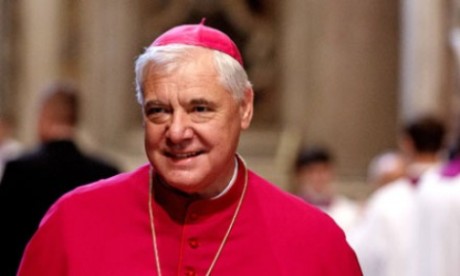The number of women on the International Theological Commission will soon be trebled, says the prefect of the Congregation for the Doctrine of the Faith.
In an interview in L’Osservatore Romano, Cardinal Gerhard Müller said the number of women will be rising from two to “five or six”, following new nominations by Pope Francis.
The commission, which assists the Holy See and especially the CDF, currently has 30 members, who are appointed for five year terms.
The two current women members are Barbara Hallensleben (professor of Dogmatic Theology and Ecumenism at the Faculty of Theology in Fribourg, Switzerland) from Germany and Sr Sara Butler (professor of Dogmatic Theology at the University of Saint Mary of the Lake in Chicago).
During the interview, Cardinal Müller stated that the female presence in the Church needed to be recognised within its own specific context, it should not be an imitation of the male model.
He stressed that the Church needs to be like a mother, not an institution, because an institution cannot love, but a mother can.
Cardinal Müller also referred to ongoing strife between the Vatican and the American Leadership Conference of Women Religious.
“We have received many distressed letters from other nuns belonging to the same congregations, who are suffering a great deal because of the direction in which the LCWR is steering their mission,” he said.
Earlier this year, Cardinal Müller strongly criticised the theological directions the LCWR favoured, especially the concept of conscious evolution, which he likened to the ancient heresy of Gnosticism.
Meanwhile, writing the Guardian, UK academic Tina Beattie called on Pope Francis to create a space where issues like Church teaching on contraception and abortion can be discussed, if he is serious about wanting a poor church of the poor.
“Pope Francis has a tendency towards romanticism when speaking about motherhood,” Dr Beattie wrote.
“This is a dangerous fantasy when it occludes the harsh realities and struggles of women’s reproductive lives,” she added.
Dr Beattie wanted more focus on the issue of maternal mortality around the world, which she said is often a “direct consequence of poverty”.
Yet, it is hardly mentioned in papal encyclicals, she noted.
Dr Beattie said that while a change in the Church’s teaching on contraception may be long overdue, “this must not translate into an uncritical endorsement of contraceptive programmes inflicted on the world’s poor”.
Sources
